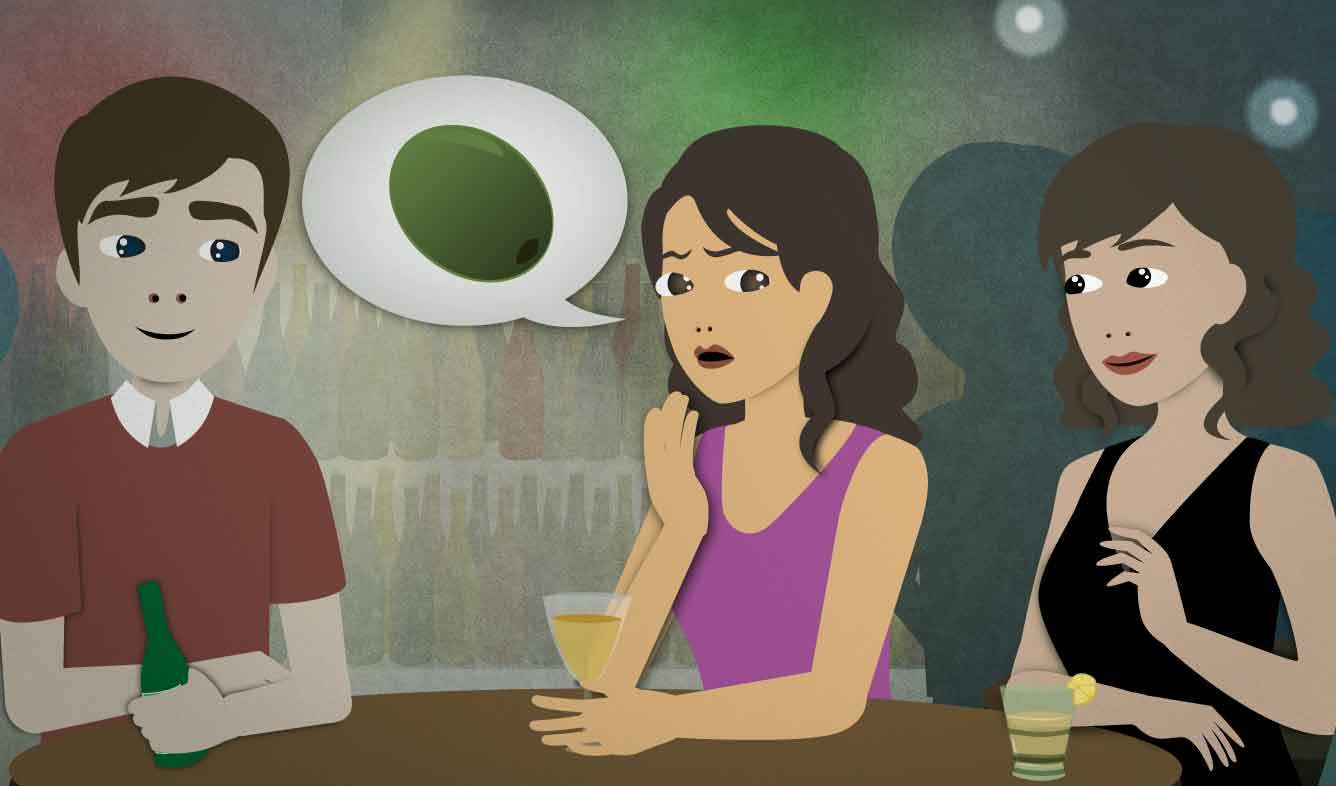“I'll tell you, one thing I can't stand is olives!”
You're talking with friends about foods you hate. For you, the one food you never eat is olives. You tell your friends how much you dislike them.
I'll tell you, one thing I can't stand is olives!
Want Video and Sound? Follow us on YouTube

(someone) can't stand (something)
Talk about something you don't like at all with the phrase "I can't stand ___":
I can't stand olives!
I can't stand being apart from you for so long.
I can't stand people who make racist jokes.
I can't stand to see an animal in pain.
You can talk about other people with this phrase as well:
Some people can't stand losing.
She can't stand it when people talk while they're chewing their food.
It's not that common to use "stand" this way in positive sentences. Instead of saying that you can stand something, say that you can "tolerate" or "handle" it:
A: Do you like rap music?
B: Yeah, it's not my favorite but I can usually tolerate it.
I'll tell you, (sentence)
You can use the phrase "I'll tell you, ___" to share your opinion with someone:
I'll tell you, that was the best sushi I've ever had in my life!
Adding "I'll tell you" to the beginning of your sentence makes it seem like you're sharing a really honest, unfiltered opinion.
one thing (clause) is (something)
This is a pattern that we sometimes use:
One thing I don't understand is why they decided to reduce the price so much.
One thing that annoys me is how he always asks questions and then doesn't wait for a response.
This type of sentence is most commonly used to talk about something that you're wondering, or something that you don't like.
